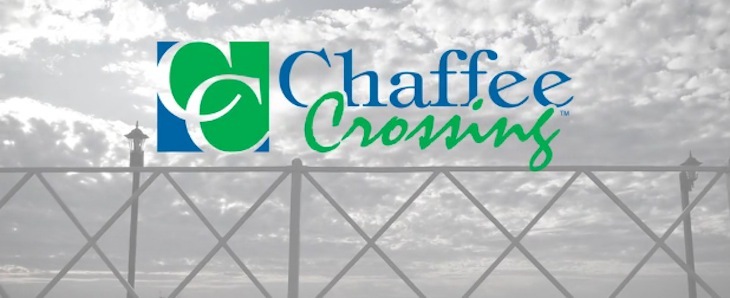FCRA Board approves 310-acre land deal for park area, equestrian use
by March 15, 2018 6:34 pm 1,046 views

The Fort Chaffee Redevelopment Authority (FCRA) approved on Thursday (March 15) a long-running effort from private developer Cliff Cabaness to purchase 310 acres of land for the purpose of developing public uses in the city of Barling.
The effort will start with Cabaness deeding 33 acres on the southernmost portion to Russellville, Ark.-based Equestrian Zone, which is a 501(c)(3) nonprofit that provides therapeutic riding and hippotherapy to children and adults with a wide range of physical, cognitive, mental, and emotional disabilities.
Cabaness also said 16 riding clubs have shown interest and he would engage in fundraising opportunities with neighbor Flightmasters to further develop the land. Additionally, he hopes to clean up debris and waste in the area and install pavilions, hiking trails, riding clubs, and parks and recreational activities while getting the land on the city of Barling’s tax rolls.
The deal appeared to be dead at the end of last week’s real estate review committee meeting. The committee allowed a motion from Barling resident and FCRA Board member Charles Peacock to die for lack of a second.
Committee members were concerned unloading that much land could stymie future industrial development opportunities in the Chaffee Crossing district. FCRA Executive Director Ivy Owen, who supported the sale to Cabaness, said there had been two companies show interest in the last 20 years, but they had ultimately backed out because of the significant costs involved in readying the land for industrial use.
Pat Mickle of the engineering firm Mickle Wagner Coleman estimated the land — which held Cabaness’ interest through 18 months and six meetings of negotiations with the trust — would cost at least $20,000 an acre to develop for industrial use (a $6.2 million investment, extrapolated).
In June of 2017, the Barling Board of Directors voted unanimously to give FCRA its approval to sell the land to Cabaness. FCRA Board member and UAFS Chancellor Dr. Paul Beran, who was not ready to support the sale last week, said he would vote for it if the city of Barling was fine with giving up on potential industrial developments at the location. On Thursday, Barling City Administrator Mike Tanner said the city “unequivocally had no reservations” about selling the land to Cabaness, preferring instead to have it cleaned up and turned into a public use rather than “roll the dice” on an industrial development that could never come.
Approximately 268 acres of the 310 is part of land Owen has described as “unmarketable wetlands.” Owen estimates 846 acres of wetlands altogether out of the trust’s remaining 2,547, so selling to Cabaness will bring down that number to 602 acres. The wetlands exist in an Army Corps of Engineers “flowage easement,” which is privately-owned land where the United States government has acquired certain perpetual rights, including the right to prohibit construction or maintenance of any structure meant for human habitation. A landowner of flowage easement land can mow, clear, and plant vegetation. They also can construct wire fencing to or along the government boundary line and sell or lease land to others, subject to the same restrictions.
A landowner may not build permanent or temporary residences or any structure or appurtenances to existing structures without prior written approval of the district engineer, and Cabaness said on Thursday he would be willing to sign a deed restriction to be drafted that would prevent him from any speculative land deals as owner.
The FCRA Board unanimously approved the purchase at Cabaness’ previous offer of $202,800 including $600 an acre for the flowage easement and wetlands property (268 acres) and $1,000 an acre for the remainder.
